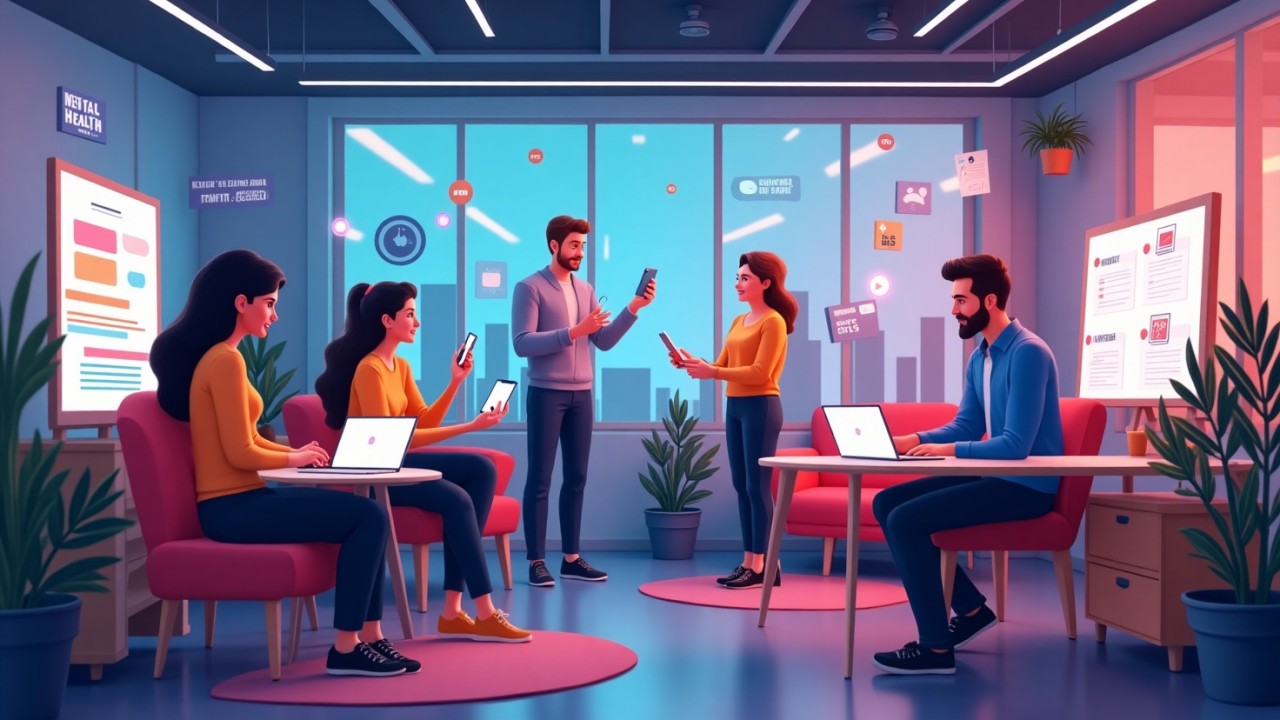
The workplace is undergoing a massive transformation, and at the center of this change is Generation Z. Born between the mid-1990s and early 2010s, Gen Z is the first generation to grow up entirely in the digital era. As they enter the workforce in large numbers, their unique values, perspectives, and expectations are reshaping how companies operate, communicate, and define success. Unlike previous generations, Gen Z is not just adapting to existing work culture—they are actively redefining it.
1. Prioritizing Flexibility Over Tradition

For Gen Z, the traditional 9-to-5 office model is no longer the gold standard. This generation values flexibility in both location and schedule. Remote and hybrid work models have become not just a preference but an expectation. Many Gen Z workers are drawn to companies that offer flexible hours, work-from-anywhere policies, and a healthy work-life balance.
Technology plays a key role in enabling this flexibility. With powerful collaboration tools like Slack, Zoom, Notion, and Google Workspace, Gen Z has shown that productivity doesn’t have to be tied to a desk. They are more interested in results than in the number of hours spent in the office. This shift is pushing organizations to rethink their rigid policies and adopt more agile ways of working.
2. Emphasizing Purpose and Values
Unlike previous generations that often prioritized job security and salary, Gen Z places a strong emphasis on working for companies whose values align with their own. Social responsibility, environmental sustainability, diversity, and ethical practices are no longer optional—they are essential.
Gen Z employees want their work to have meaning. They are more likely to support organizations that take a stand on social issues, implement sustainable practices, and foster inclusive workplaces. Companies that fail to demonstrate authentic values risk losing this talented pool of workers to competitors who do.
3. Championing Mental Health and Well-Being

Gen Z has helped bring conversations about mental health into the workplace in a way that no previous generation has. They value transparency, self-care, and emotional well-being, and they expect their employers to do the same. For them, a healthy work culture includes access to mental health resources, a supportive environment, and policies that prevent burnout.
Organizations are responding by offering wellness programs, mental health days, therapy benefits, and training for managers to support their teams. Gen Z’s openness about mental health is reducing stigma and helping to build healthier, more human-centered workplaces.
4. Driving Technological Transformation
As true digital natives, Gen Z has grown up with smartphones, social media, and instant access to information. They bring a level of tech-savviness that is driving digital transformation within organizations. Gen Z workers expect modern tools, intuitive software, and efficient systems. They are quick to adopt new technologies and often push their employers to stay current.
This has led many companies to invest more in automation, digital collaboration tools, and streamlined processes. Gen Z’s comfort with technology is making workplaces more efficient, connected, and adaptable to change.
5. Redefining Career Paths and Success

For Gen Z, the idea of a “job for life” is outdated. They see careers as flexible, evolving journeys rather than linear ladders. Many are interested in side hustles, freelancing, or entrepreneurship alongside their main jobs. They value opportunities for skill-building and personal growth over traditional promotions or titles.
Success for Gen Z is not solely defined by climbing the corporate hierarchy. It’s about meaningful work, continuous learning, and maintaining a balanced lifestyle. This shift is prompting companies to offer more development opportunities, mentorship programs, and creative career pathways to retain talent.
6. Fostering a Culture of Feedback and Collaboration
Gen Z thrives in environments where communication is open, frequent, and two-way. They appreciate regular feedback and want to feel heard by their managers. Unlike older generations who might have accepted yearly performance reviews, Gen Z prefers real-time feedback that helps them grow.
They also value teamwork and collaboration, often favoring flat organizational structures over rigid hierarchies. Companies that create inclusive, communicative environments are more likely to keep Gen Z employees engaged and motivated.
7. Advocating for Diversity, Equity, and Inclusion
Diversity is not a buzzword for Gen Z—it’s an expectation. This generation is the most diverse yet, and they seek workplaces that reflect and respect that diversity. They value equity, inclusion, and belonging, and they hold employers accountable for creating fair and welcoming environments for everyone.
Organizations are being pushed to not just talk about diversity but actively implement inclusive hiring practices, provide equal opportunities, and build safe spaces where different voices are heard and valued.
Conclusion
Gen Z is not simply fitting into existing work cultures—they are transforming them. Their emphasis on flexibility, values, technology, mental health, and inclusivity is reshaping the way companies think about work. As more Gen Z professionals enter the workforce, businesses that adapt to these changes will not only attract top talent but also thrive in a rapidly evolving world.
The future of work is here, and Gen Z is leading the way.
